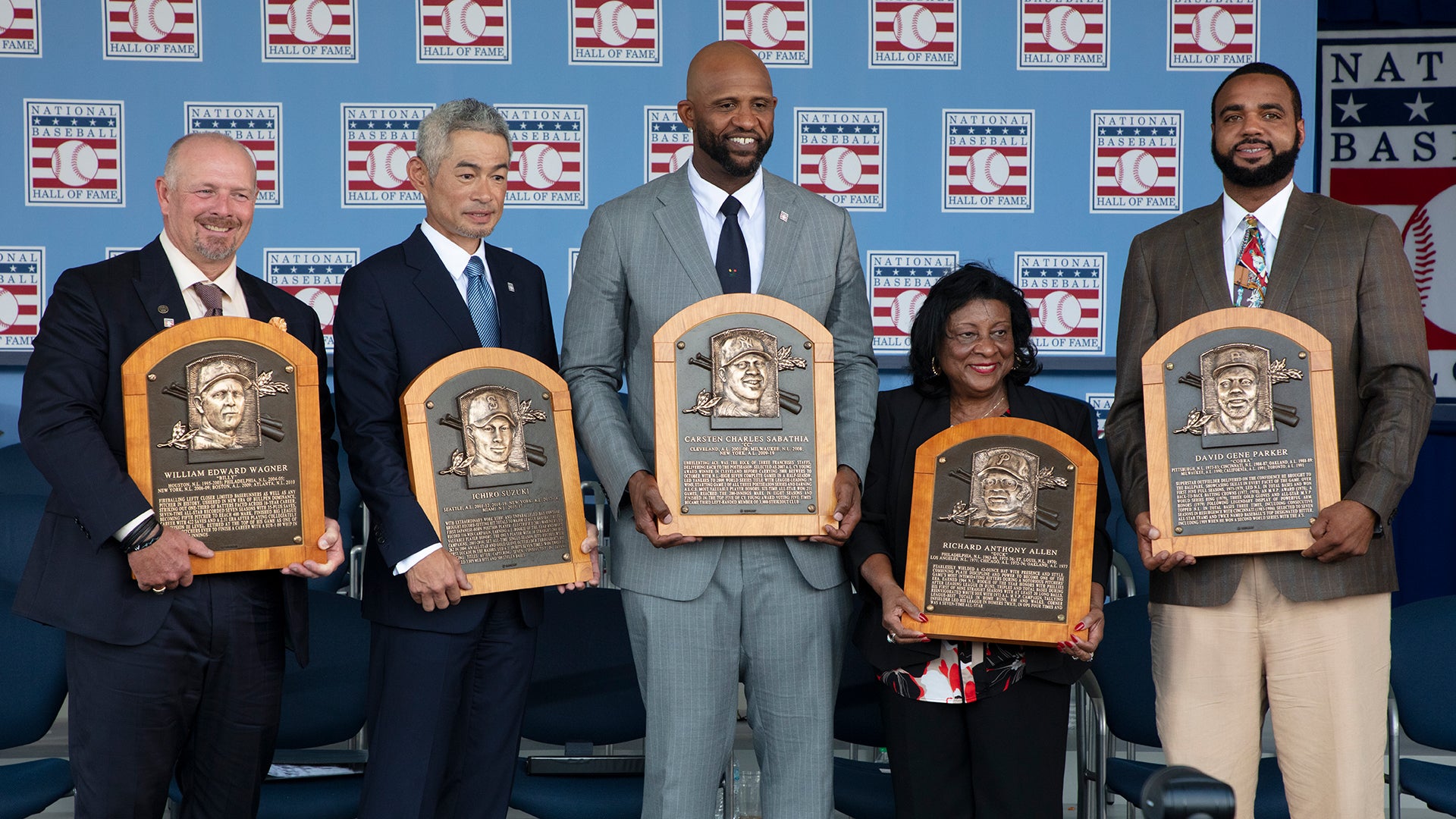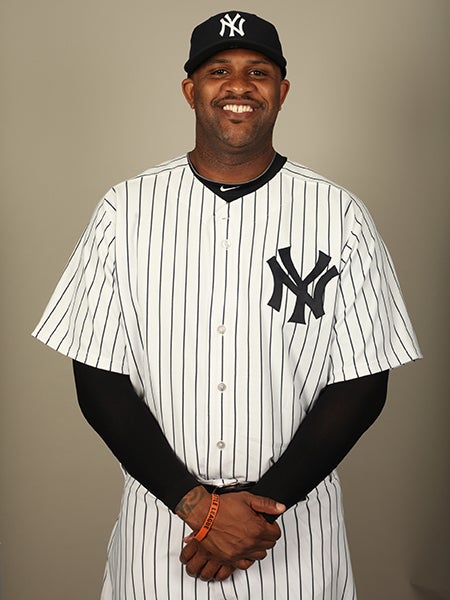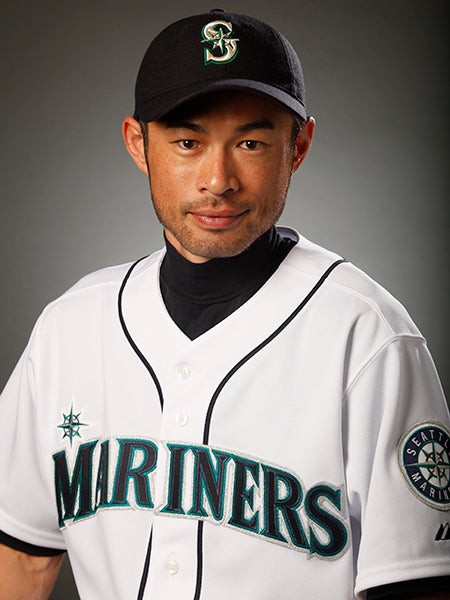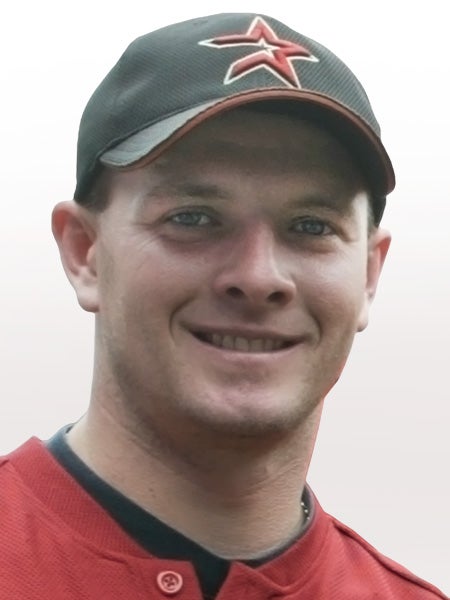- Home
- Our Stories
- Class of 2025 thrills fans at Induction Ceremony
Class of 2025 thrills fans at Induction Ceremony
A one-hour rain delay did nothing to dampen the spirit and enthusiasm of a large crowd of fans awaiting the bronze plaque coronation of baseball heroes.
The 2025 National Baseball Hall of Fame Induction Ceremony, with its revised 2:30 p.m. EST starting time, packed a lot in its three hours. Foremost was the induction of the Class of 2025: Dick Allen, Dave Parker, CC Sabathia, Ichiro Suzuki and Billy Wagner.
The Cooperstown team of legends, which now totals 351, gave their induction speeches before an estimated crowd of 30,000 on Sunday afternoon. The event, which took place on a green field at the nearby Clark Sports Center, is where the bronze plaques of the five recent electees made their first public appearance.

The 76th edition of the Hall of Fame’s annual summer ritual that dates back to 1939 saw 52 returning Hall of Famers on stage as the inductees, or a family representative in case of a deceased honoree.
The newest members of this exclusive fraternity would speak of their families, thank teammates, coaches and managers, have the occasional emotional moment, and try their best to put into words what being a Hall of Famer now means to them.
The festivities began when Hall of Fame Chairman Jane Forbes Clark took to the podium as the day’s first speaker.
“As I have said many times before, the National Baseball Hall of Fame is an extraordinary place, and no one has described our game and what the Hall of Fame means better than Ryne Sandberg, a Chicago Cubs legend and a member of the Hall of Fame Class of 2005,” she said. “During his induction speech, he said, ‘The reason I’m here, they tell me, is because I played the game a certain way; that I played the game the way it was supposed to be played. I don’t know about that, but I do know this. I had too much respect for the game to play it any other way. If there was a single reason I am here today, it is because of one word: respect.’
“There is not a man seated behind me this afternoon who didn’t play the game the same way, Ryno. It is that respect, character, sportsmanship, integrity and excellence that leads to just one percent of those who have ever played Major League Baseball to be inducted into the Hall of Fame.”
Ichiro’s fantastic dream comes true. #HOFWKND pic.twitter.com/OGSqA7Y72h
— National Baseball Hall of Fame and Museum ⚾ (@baseballhall) July 27, 2025
Just prior to their induction speeches, Clark presented each of the new honorees with a Hall of Fame ring onstage that commemorates their induction.
“Today, I am feeling something I thought I would never know again,” began Ichiro, speaking in English for the entirety of his speech. “For the third time, I am a rookie. First in 1992 after the Oryx BlueWave drafted me out of high school. Then in 2001 I became a rookie again at 27 when the Seattle Mariners signed me. As I look over here now and see men like Rod Carew, George Brett and Tony La Russa, I realize I’m a rookie again. Thank you for welcoming me so warmly into your great team.”
Suzuki, 51, burst on the major league scene in 2001 with the Seattle Mariners as the first position player from Japan and went on to win both the American League MVP and Rookie of the Year Awards in the same season, a feat accomplished by only one other player, Fred Lynn of the Boston Red Sox in 1975. Over a 19-season career that included time with the New York Yankees and Miami Marlins, Suzuki knocked out 3,089 hits in becoming the first player with 10 consecutive seasons of 200-plus hits, including a record 262 in 2004, a year in which he won his second batting title at .372. His first came in his rookie year when he hit .350 with 242 hits and 56 of his career 509 stolen bases.
“When fans use their precious time to come watch you play, you have a responsibility to perform for them, whether we are winning by 10 or losing by 10,” Ichiro said. “I felt my duty was to motivate the same from Opening Day through game 162.
“Baseball taught me what it means to be a professional, and I believe that is the main reason I am here today, not because my skills are better than others.”
Suzuki also collected 10 straight Gold Glove Awards for fielding, three Silver Slugger Awards for batting and 10 All-Star Game selections, including nine starts. He was the All-Star Game MVP in 2007. Ichiro led the AL in games played four times, at-bats eight times, hits seven times, singles 10 times and intentional walks three times. Defensively, he led AL right fielders in putouts seven times, fielding percentage four times (once as a center fielder) and assists twice as a right fielder. Including his totals with the Orix BlueWave in Japan’s Pacific League, Ichiro amassed 4,367 career hits over 28 seasons.
Ichiro ended by stating going into America’s Baseball Hall of Fame was never his goal. “I didn’t even know there was one until I visited Cooperstown for the first time in 2001,” he continued, “but being here today sure feels like a fantastic dream.”
When you smile, the baseball world smiles with you, @CC_Sabathia. #HOFWKND pic.twitter.com/ZMUYuJb0Yu
— National Baseball Hall of Fame and Museum ⚾ (@baseballhall) July 27, 2025
Sabathia, 45, had a 19-year big league career, the first eight spent with Cleveland and the final 11 as a Yankee sandwiched around a partial season with the Brewers in 2008. He totaled 251 victories and 3,093 strikeouts, one of just four left-handers with at least 3,000 strikeouts. He’s also one of just six pitchers in history with at least 250 wins, a .600 winning percentage and 3,000 strikeouts.
“Thank you most of all to the great players sitting behind me. I am so proud and humbled to join you as a Hall of Famer, even Ichiro who stole my Rookie the Year Award in 2001,” joked Sabathia at the start of his speech.
“In January, I was sitting on our couch in our in our house when Amber’s (Sabathia’s wife) phone rang. The Hall of Fame knew to call her. I’m known not to answer a call or a text. Yeah, I have been watching the tracker for months and things looked good, but when we got the news that day, I was in shock. The room was cheering and I was just sitting there until Jaeden (daughter) gave me a hug and snapped me out of the daze. The next day, we drove up to Cooperstown, me behind the wheel, Amber in the front passenger seat. Like always, it’s been a long road from Vallejo, Calif., and I wouldn’t have made it all this way without the women redirecting me when I got lost. Tonight, tell your grannies, your moms, your aunts, your sisters, your wives, your girlfriends and your daughters, how much you love and appreciate them.”
Billy the Kid rides into the Cooperstown sunset. #HOFWKND pic.twitter.com/VE2Ifuu3Rj
— National Baseball Hall of Fame and Museum ⚾ (@baseballhall) July 27, 2025
Wagner, who celebrated his 54th birthday on July 25, was a seven-time All-Star and one of the most dominating closers in Major League history. He spent the first nine years of his standout 16-year MLB career with Houston, posting 225 saves and 694 strikeouts in 464 games. Selected by Houston in the first round of the 1993 draft, within four years he became the franchise’s closer. He finished fourth in the 1999 NL Cy Young Award race after setting an Astros single-season franchise record for saves in 1999 (39 saves) before topping his own club-record mark in 2003 with 44 saves.
“Being up here today, I feel like my baseball life has come full circle,” Wagner said. “I was a fan before I could play and back when baseball wasn’t so available on TV, every Saturday morning I watched Johnny Bench and so many of the other greats, on a show, The Baseball Bunch. Now here I am standing among you. It’s really hard to believe.”
Overall, Wagner spent 16 seasons in the majors, where he also spent time with the Phillies, Mets, Red Sox and Braves. Appearing in 853 contests without starting one, he recorded 422 career saves, second highest among left-handed relievers and eighth overall. His career 2.31 ERA is lowest among retired left-handed pitchers with at least 500 innings pitched in the live ball era. A seven-time All-Star, the fireballer set a record (since surpassed) for highest single-season-strikeout-per-nine innings rate among relievers (14.95) in 1999.
“In conclusion, to every kid out there, this is my message to you,” Wagner said. “Obstacles are not a roadblock. Obstacles are steppingstones. They build you and shape you, refine you. I wasn’t the biggest. I wasn’t left-handed. I wasn’t supposed to be here. There were only seven full-time relievers in the Hall of Fame. Now there are eight because I refused to give up or give in. I refused to listen to the outside critics. And I never stopped working. That’s what this game does for you. It teaches you about life. It teaches you how to persevere. Don’t fear failure; embrace it, because perseverance isn’t just a trait, it’s the path to greatness.”
Bill Francis is the senior research and writing specialist at the National Baseball Hall of Fame and Museum





